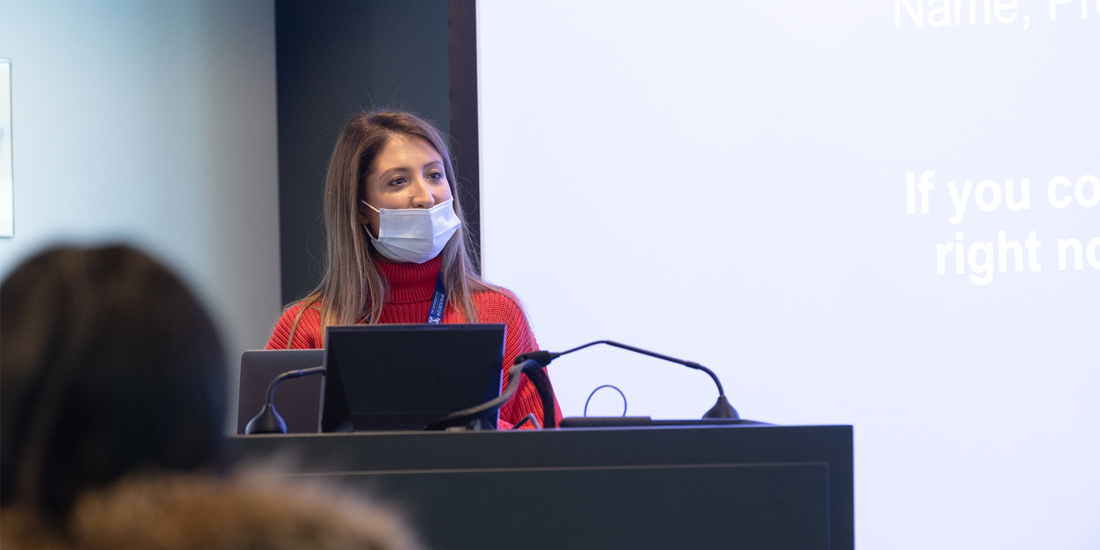
Orygen’s Dr Louise La Sala has been awarded a Suicide Prevention Australia post-doctoral fellowship to adapt #chatsafe for high school aged young people, their carers and teachers.
The #chatsafe initiative comprises a set of world-first evidence-informed guidelines and a social media campaign designed to directly support young people to communicate safely on social media about suicide.
Dr La Sala said the $290,000 two-year award would help Orygen build on the success of its #chatsafe initiative and fund a new body of work supporting high school students, their carers and teachers to communicate safely online about suicide.
“Up until now, the #chatsafe project has largely worked with young people aged 18 and over. This fellowship will be the start of us trying to understand more about what younger people – those aged between 13 and 17 – want and need when it comes suicide prevention and social media,” Dr La Sala said.
“We know that those attending high school have their own unique developmental hurdles, and they also use social media differently – they have different online practices, they use different platforms, and it is likely they resonate with different types of online content.”
The research will lead to the piloting of a school-based #chatsafe program, and the creation, sharing, and evaluation of a suicide prevention social media campaign for young people aged 13 to 17.
“The outcomes of this project will inform a suicide prevention program that can be delivered in school settings, as well as a new suite of social media content that we can share online with high school aged young people right across Australia, and even across the globe,” Dr La Sala said.
“This project will help us develop age-appropriate and effective suicide prevention information for high school aged young people in a way that is meaningful to them and across platforms that they use.”
The work will also deliver evidence-based training to educators and parents or carers.
“This project will increase the capacity of educators and parents to support high school aged young people to communicate safely about suicide, as well as increasing their confidence in identifying risk and responding appropriately.
“We know that the adults in a young person’s life are a really important source of support, and we want their teachers and carers to feel ready and able support them when it comes to communicating about suicide. We don’t want to shut those conversations down, but equip people to have them safely.”
Dr La Sala added that the project would contribute to the evidence-base for more effective suicide prevention interventions, with an increased focus on protective factors.
“Social media is a unique and important social context to consider when it comes to youth suicide prevention, and it is known that social media can provide many protective factors such as real-time support, connectedness, and a sense of belonging,” she said.
“Not only do young people view and share suicide related content online, social media platforms provide a youth-friendly, highly accessible and cost-effective way to share suicide prevention information.”